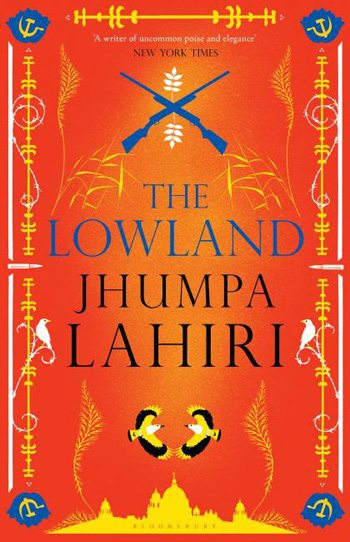
This article is a preview from the Winter 2013 issue of New Humanist magazine. You can subscribe here.
How does a cataclysmic event play out across generations of one family? Jhumpa Lahiri sets out to examine this question in her second novel, which explores the themes of migration and inter-generational discord familiar to readers of her earlier work. It begins choppily, outlining the relationship between two archetypal brothers growing up in 1950s Calcutta. Udayan’s independent streak sees him joining the Naxalite student movement at its height in the 1970s. Meanwhile, Subhash goes quietly to the US to study and escape his charismatic brother’s shadow. Back home, Udayan is murdered by police officers, turning his young and pregnant wife Gauri into a widow bound to her oppressive in-laws. The consequences of his death and Subhash’s decision to rescue his sister-in-law from his parents’ stifling home play out over the next 40 years.
Such a period of upheaval and idealism in post-partition India should have been rich source material. However, the politics only provide grist for a novel which is ultimately about the heritable nature of resilience and repression. They also serve as a way of connecting the generations, from Udayan’s extremism to his daughter Bela’s lifestyle activism. Lahiri’s cool and measured prose, so incremental in its effect, means that we never feel the revolutionary fervour that informs the story’s most significant event.
The lowland of the title comes to symbolise changes in India over this timespan, transforming from a communal beauty spot to a development site earmarked for the country’s new rich. Despite its significance, Lahiri’s emotional compass is firmly directed to the US. The story only comes alive when Subhash arrives in the author’s much-loved New England. The strange new social mores of the elective community of academia are mirrored by the alien landscape he prods and examines in his work as a biologist. The contrast between the two places becomes more nuanced later on, as Bela roams across the US, as intentionally lost and ambivalent about her freedom as her second-generation precursor Gogol in Lahiri’s first novel The Namesake.
But the frequent accusations of excessive refinement in Lahiri’s prose fall flat in the end. The Lowland is also about the redemptive power of love. Her examination of the dark side of motherhood through Gauri and Bela’s difficult relationship is all the more effective for its restraint and aversion to salacious detail. Gauri, intellectually ambitious and fiercely independent, unexpectedly emerges as The Lowland’s most compelling figure. Her disinclination towards motherhood is never made into her hamartia. The life of the mind is what fascinates her as a philosophy professor, making her the least willing of the cast to accept the roles designated to her by others.
Even the most troubled characters are redeemed through their need to show love or gratitude. The novel is full of relationships and couples, major and minor, as if mutual dependency is our real condition, as much as loneliness seems fated. The narration is splintered between many viewpoints. Sometimes this makes the story feel under-powered but it also reaffirms the generosity that underlies the sparse sentences, which are sometimes so effectively illuminated by a telling image. Lahiri weaves her ideas so subtly that the few moments in which the characters snap out of their emotional torpor are deeply moving. It is difficult to love this novel but perhaps her slow and steady approach is intended to distance us so we can see better, in order to understand and empathise first.
The Lowland by Jhumpa Lahiri is out now (Bloomsbury, £16.99)

